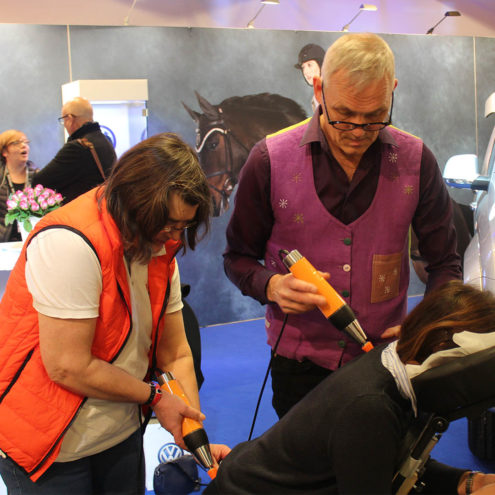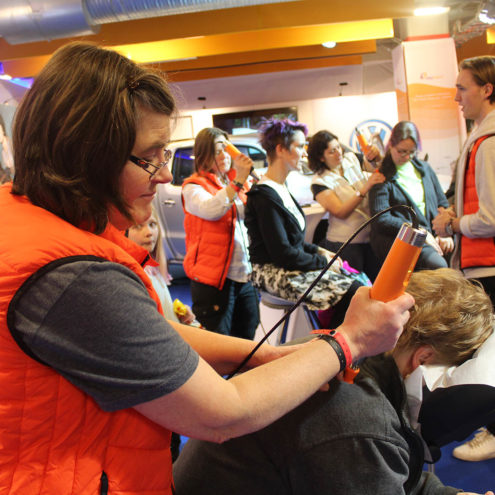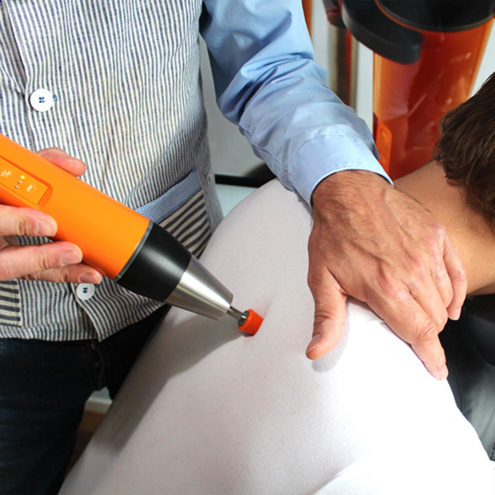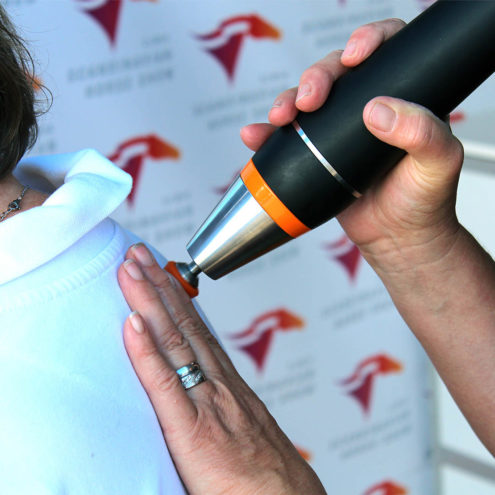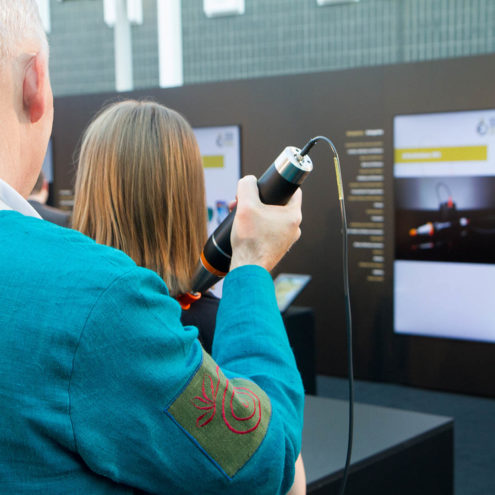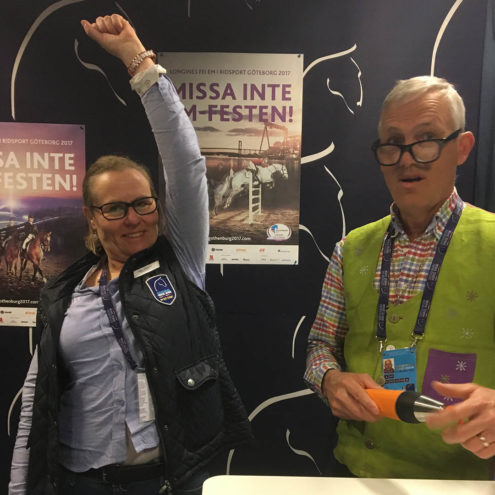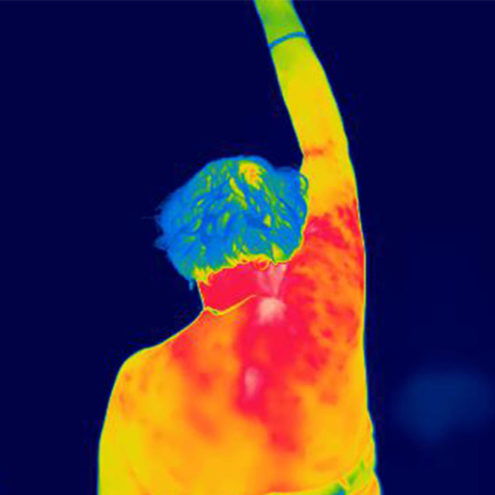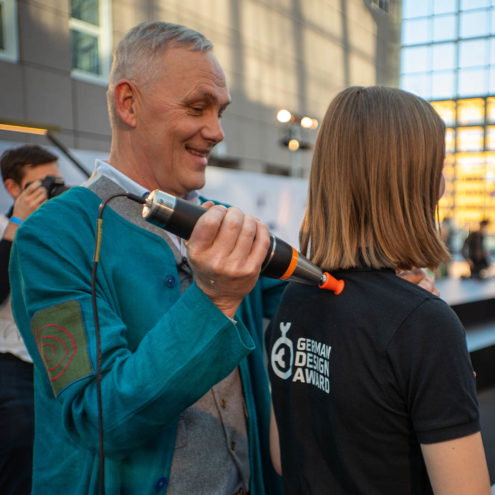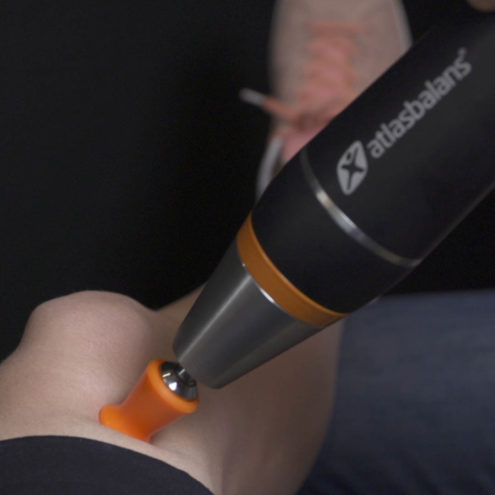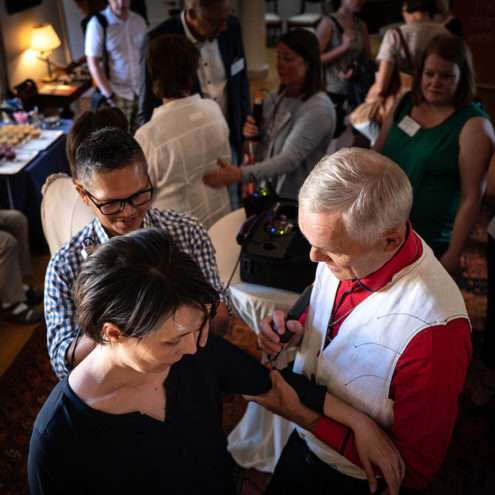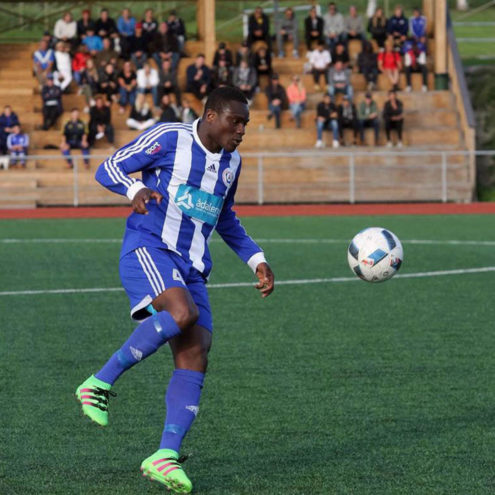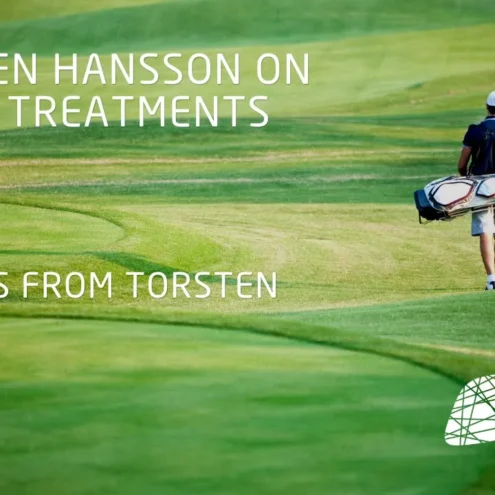Coxarthrosis: Symptoms and Treatment

Coxarthrosis, also known as hip osteoarthritis, is a degenerative joint disease that affects the hip joint and its articular cartilage. This disease can cause significant pain and limit the range of motion of the joint. In this article, we will explore what coxarthrosis is, its symptoms, common causes as well as available treatment options.
What is coxarthrosis?
Description of coxarthrosis
Osteoarthritis of the hip is a form of osteoarthritis that affects the hip joint. Osteoarthritis is a disease characterized by the gradual breakdown of the cartilage covering the joint surfaces. In the hip joint, the cartilage acts as a gliding surface that allows smooth movement between the femoral head and the pelvic socket. When this cartilage breaks down, the bone surfaces become unprotected and cannot slide smoothly against each other. The friction irritates the synovium, causing pain and stiffness of the joint.
Common causes of coxarthrosis
The causes of coxarthrosis can be several. Some of the most common include:
Age-related changes: With age, the ability of cartilage to repair itself decreases, which can lead to osteoarthritis. Older individuals are therefore more likely to develop coxarthrosis.
Overexertion: Excessive stress on the hip joint, for example through heavy physical activity or repetitive movements, can accelerate the breakdown of cartilage.
Previous injuriesInjuries to the hip, such as fractures or dislocations, can increase the risk of developing coxarthrosis later in life. These injuries can cause irregular surfaces or changes in the mechanics of the joint, leading to increased wear and tear on the cartilage.
Symptoms of coxarthrosis
Pain in the hip when straining or moving
One of the most prominent symptoms of coxarthrosis is pain in the hip, especially with strain or movement. This pain can be particularly noticeable during activities such as walking and running. It is also common to experience pain after prolonged sitting or when getting up after sitting down for a long time. The pain can vary in intensity, sometimes becoming so severe that daily activities and sleep are negatively affected.
Stiffness or limited mobility in the hip
Stiffness with limited mobility are other common symptoms of coxarthrosis. These symptoms are usually most pronounced in the morning or after sedentary periods. Patients may experience difficulty bending or extending the hip, which can make it difficult to perform simple daily activities such as getting dressed or climbing stairs.
Swelling and tenderness around the hip joint
Inflammation of the hip joint can lead to swelling and tenderness around the joint. This can contribute to further discomfort and make movement difficult. The swelling may be visible and may feel warm. Tenderness to touch or pressure is also a common sign of inflammation.
Treatment of coxarthrosis
Pain relief with medication
To manage the pain and inflammation associated with coxarthrosis, doctors may recommend different medications. Painkillers, such as paracetamol, and anti-inflammatory drugs, such as ibuprofen or naproxen, can help reduce discomfort and improve mobility. In some cases, the doctor may also prescribe stronger painkillers or cortisone injections directly into the hip joint to relieve symptoms.
Physiotherapy
Physiotherapy plays an important role in the treatment of coxarthrosis. By working with a physiotherapist, you can learn specific exercises to strengthen the muscles around the hip, improve mobility and increase stability in the joint. Regular exercise and stretching can also help reduce stiffness and pain. The physiotherapist can also offer advice on how to adapt daily activities to reduce stress on the hip joint.
Surgical procedure
In more advanced cases of coxarthrosis, surgical procedures may be considered. A common procedure is to replace the damaged hip joint with an artificial joint (prosthesis). This can significantly reduce pain and restore function to the hip. Hip replacement is often a last resort when other treatment methods have not provided sufficient relief. Recovery after surgery can take several months and often requires intensive physiotherapy to optimize results.
How can we help you with your coxarthrosis?
At the FasciaClinics, we take a holistic approach to the treatment of coxarthrosis. Our team of therapists use fascia therapy to relieve tension and pain in our body. The fascia is the network of connective tissue that binds and permeates everything in our body. All cells, tissues (even bone tissue), muscles and organs contain fascia.
Fascia treatment focuses on releasing tension and adhesions in the fascia and increasing its flow. Reducing pressure and increasing circulation in the fascia reduces pain in the joint and increases mobility. Increased flow also makes it easier for our cell membranes to absorb and release substances. Fascia treatment can thus promote the body’s own healing. The treatment is also pleasantly relaxing and painless.
During a visit, we analyze the whole body to see where compensations and imbalances are and how they have spread. If there is an imbalance in the body, there is a risk that it will spread and affect other structures such as muscles and joints. That’s why it’s very important to seek help quickly as soon as you notice any symptoms.
Fascia treatment for coxarthrosis involves balancing the body by adjusting the pelvis to even out the load on the hip joints. We also work to soften the fascia in the muscles, joints and ligaments around the hips and buttocks. A more even load will mean that the hip joints, muscles and other structures are not exposed to as much pressure and wear.
Contact us today to get the help you need and start your journey towards a pain-free and active life. Our team of fascia therapists is here to support you through every step of your recovery and help you achieve the best possible results. We aim to give you the care and attention you deserve, so you can return to your daily activities without pain and discomfort.
Osteoarthritis can be a challenging disease to live with, but with the right treatment and support, you can improve your function and reduce pain. Contact us at the FasciaClinic to book a consultation and take the first step towards a more active and pain-free life.
 Search
Search

